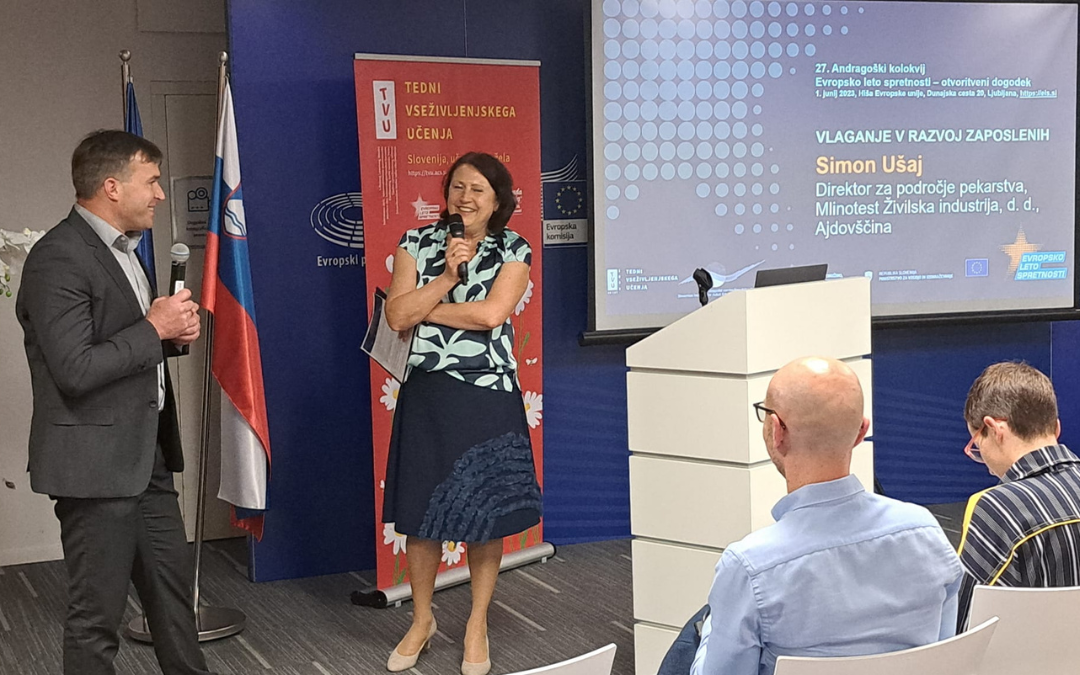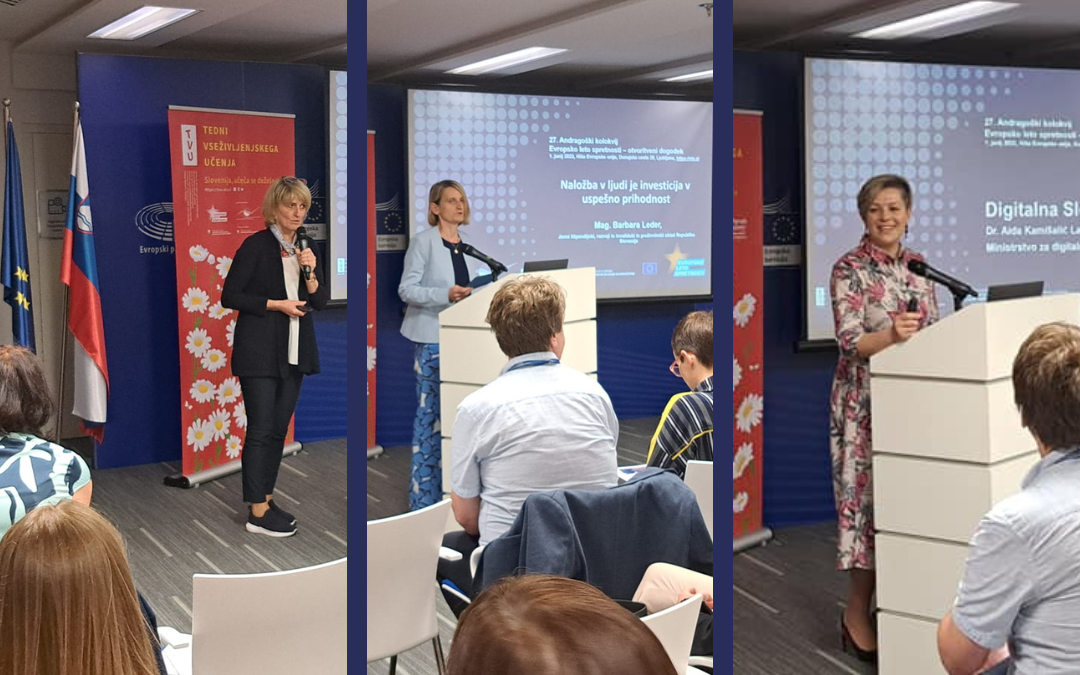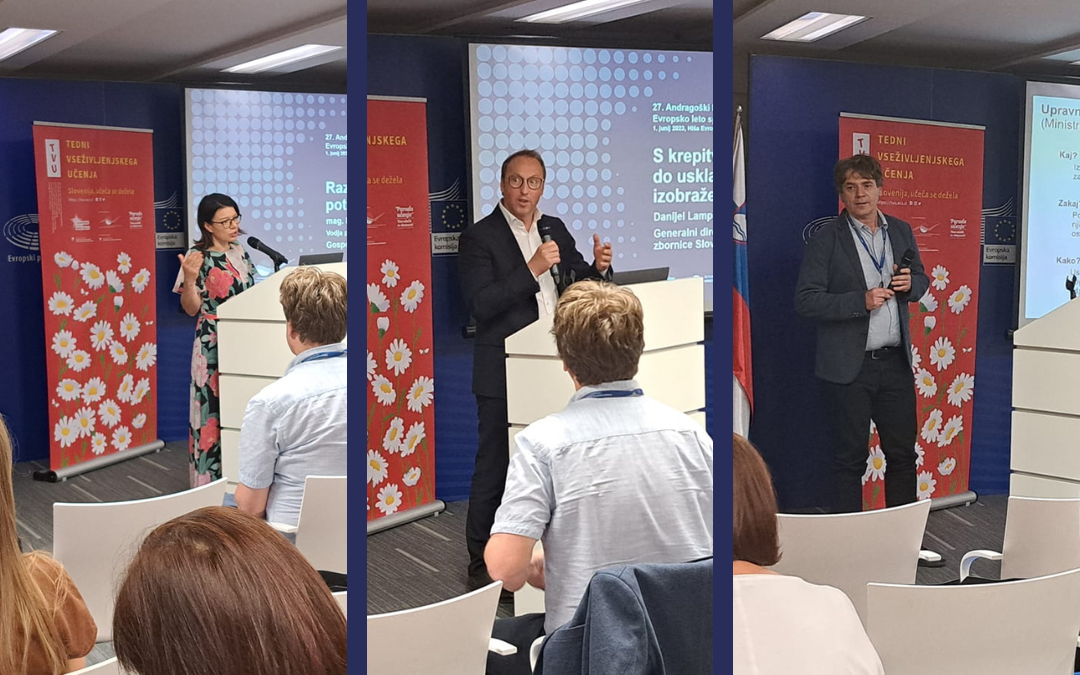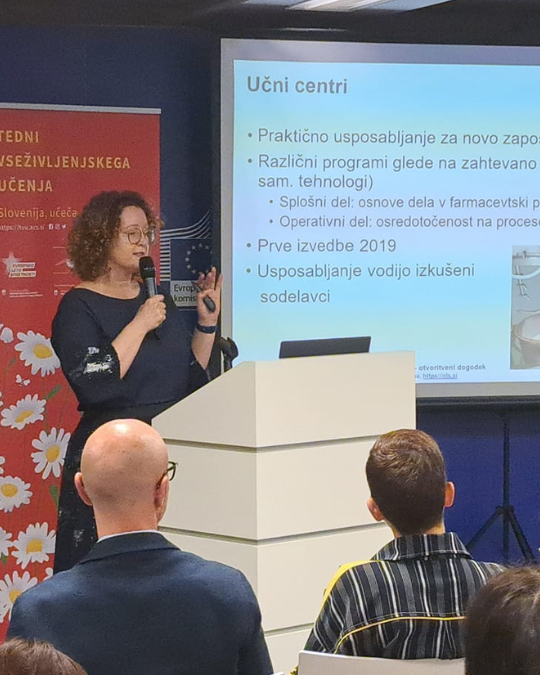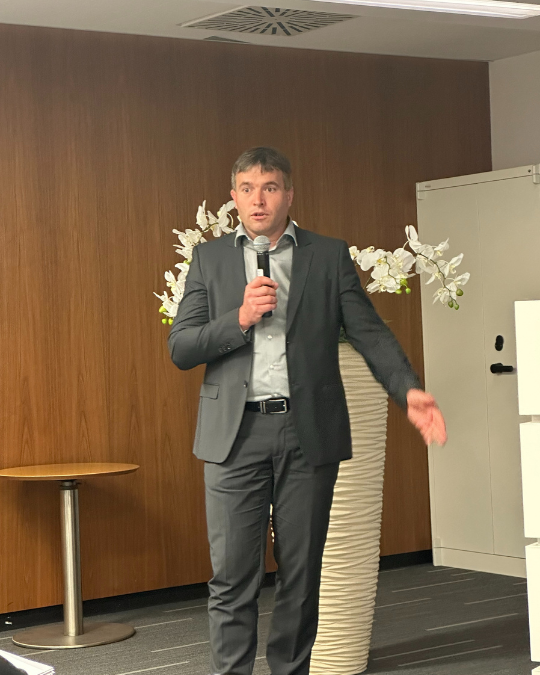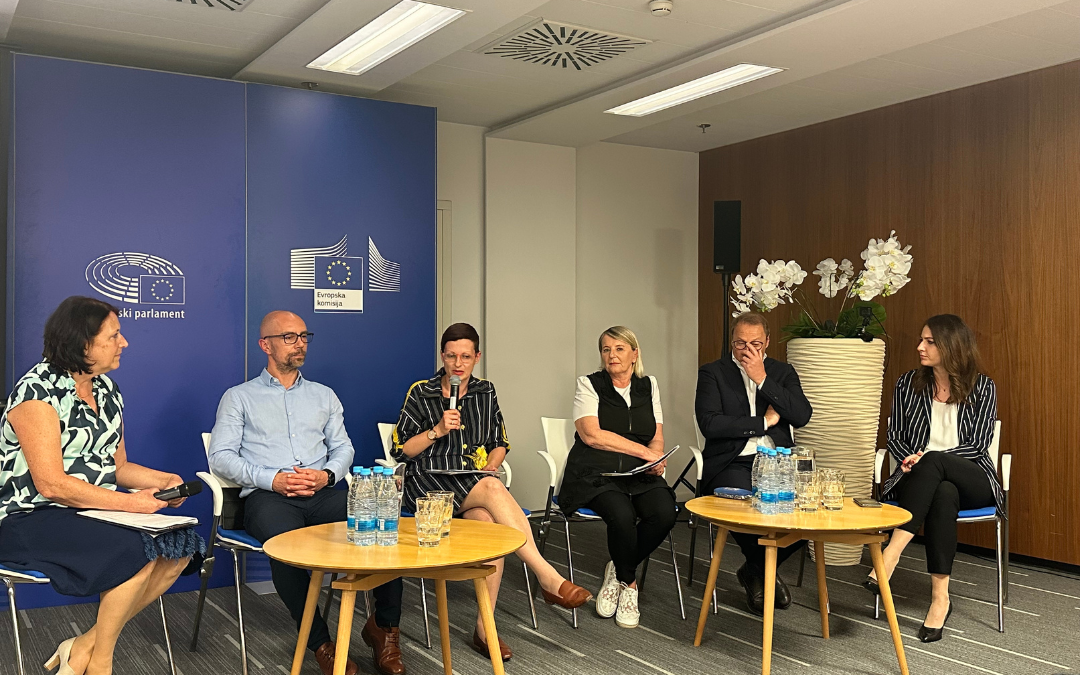The leading professional event under the auspices of the 28th LLW was organised by the SIAE in close collaboration with the Ministry of Labour, Family, Social Affairs and Equal Opportunities and the Ministry of Education on 1 June at the House of the EU. Eighty-five participants gathered to address the topic of skills in a world that is changing incredibly fast and profoundly.
This initiative by the European Parliament and the Council, shaped into the EYS institute, appears to be the strongest one so far. The issues at hand are indeed dramatic, as highlighted by high-ranking EU representatives. It is almost a ‘revolution in the field of skills’, connected to the ambitious goals of the European Pillar of Social Rights and its action plan.
In numerous industries, there is a shortage of workforce that possesses skills matching the needs of the labour market. On the one hand, this necessitates the urgent requalification and further training of the existing workforce. On the other hand, it requires attracting workers from different environments – hence, learning, education, training, etc. It also calls for proactive awareness-raising, learner-centred guidance, validation of existing knowledge and skills and other measures.

How is Slovenia responding to the EYS initiative?
What is the situation in our country, and how can we take action? What are the challenges of ensuring skills for work and life in general? How can we simultaneously support the green and digital transition? How can we provide a comprehensive, economic and humanistic approach to solving these issues? Are there already good examples of systematic and continuous investment in employees?
We addressed these questions in several programme segments. In one of them, six national stakeholders, including the Ministry of Digital Transformation and the Ministry of Public Administration, the Chamber of Commerce and Industry of Slovenia as well as the Chamber of Craft and Small Business of Slovenia, the Employment Service of Slovenia and the Public Scholarship, Development, Disability and Maintenance Fund of the Republic of Slovenia, presented their activities aimed at providing the acquisition of skills for work and life in general.
Active labour market policies regulate mismatches in the labour market.
Investing in people is an investment in a successful future.
Statistics are ruthless, and regarding digital competencies, they do not paint the most flattering picture of Slovenia.
By caring for ourselves, learning and acquiring knowledge, we also deepen our green skills.
People should be appropriately compensated for their work.
We are introducing digital skills, but we also need socio-emotional skills.
Representatives from Krka, a pharmaceutical company, and Mlinotest Živilska industrija, a food industry company, showcased concrete examples of investment in employee education and training through personal presentations and video recordings, including participant testimonials.
During the discussion on the topic of Challenges of Ensuring Skills for Work and Life, representatives from the Ministry of Education, the Ministry of Labour, Family and Social Affairs and the Ministry of Digital Transformation exchanged views, along with a representative of employers from the Economic and Social Council and a representative from the Association of Adult Education and Guidance Centres of Slovenia.
Dr Til Rozman, Ministry of Digital Transformation: »Digital competencies are necessary to ensure all individuals engage in social activities.«
Mojca Pršina, Ministry of Labour, Family, Social Affairs and Equal Opportunities and the Ministry of Education : »In collaboration with the Employment Service of Slovenia, we are developing a platform for forecasting workforce needs.«
Teja Dolgan, Ministry of Education: »Skills for life are the building blocks of individual independence and personal effectiveness.«
Maja Radinovič Hajdič, MSc, Association of Adult Education and Guidance Centres of Slovenia: »We will focus on vulnerable target groups not empowered enough to seize what is offered to them..«
Danijel Lamperger: »All craft and small business sectors require the inclusion of artificial intelligence in education.«
Zvonka Pangerc Pahernik, MSc, SIAE: »Recognise the meaning of EYS and be dedicated to this year-long campaign.«
The event took place under the strong imprint that Dr Petra Javrh left on the participants with her adult education-oriented contribution, where she spoke about the skills of adults in Slovenia.

The Slovenian farmer was well aware that he would not get helpers on the farm if he did not treat them well.
In the end, we could only agree with the statement of the European Commissioner for Jobs and Social Rights, Nicolas Schmit, who said, “Not just a year, but a decade or more dedicated to skills will help alleviate socio-economic disparities.”
The complete programme, live stream recording, PowerPoint presentations and other event materials (in Slovenian) are available on the website of the 27th AEC.
Zvonka Pangerc Pahernik, MSc (zvonka.pangerc@acs.si), edited by Ana Peklenik (ana.peklenik@acs.si), both from the SIAE.

